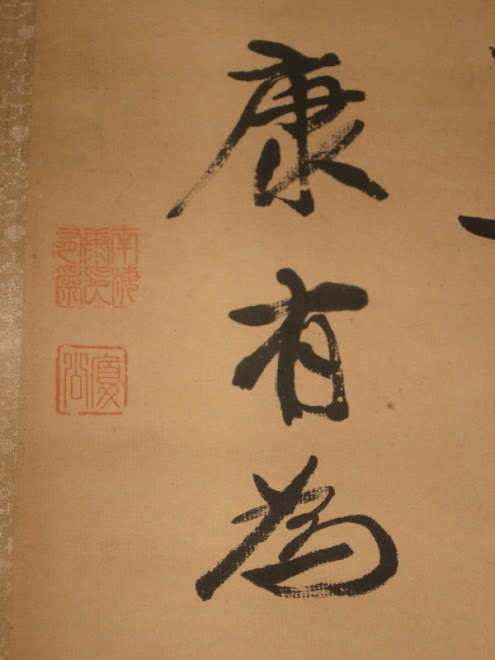This year's New England regional Association of Asian Studies meeting is being held at the University of Connecticut, Storrs, October 3-4. Storrs is very near the small town of South Windsor, Connecticut, where Kang Tongbi lived from 1903 to 1907. Since we have been working with the large collection documents she left behind in South Windsor, we have organized the following panel.
Kang Youwei’s First American Sojourn: 1905Kang Youwei as Utopian, Traveler and Politician
Robert L. Worden, Division Chief, Library of Congress (retired)
In 1905, between trips to Canada and Mexico, the exiled constitutional reformer Kang Youwei toured more than 50 cities and towns in the United States from February 11 to December 2. This paper describes Kang’s itinerary with a focus on New England, the notable people he met, and the political and business affairs he handled as president of the Chinese Empire Reform Association (Baohuanghui), including his advocacy of the 1905 anti-American boycott and opposition to the Chinese Exclusion policy.
The Kang Tongbi Collection of South Windsor, Connecticut
Jane Leung Larson, independent scholar, Goshen, Massachusetts
Kang Youwei’s first American journey in 1905 and the internal workings of the Baohuanghui are revealed in correspondence received by his daughter, Kang Tongbi, in Connecticut, where she studied and managed Baohuanghui activities. This newly-discovered collection shows Kang and reform activists in 1905 discussing organizational conflicts, fundraising, ambitious business plans, Sun Yatsen, and attempts to influence the American government debate over Chinese Exclusion.
Utopianism and Modern Material Civilization in Kang Youwei
Peter Zarrow, Professor of History, University of Connecticut
Kang Youwei's utopian thought evolved from the late 1880s into the early 1900s, and though the sources do not permit us to trace the changes and additions he made to what would become Datongshu, Kang's personal experiences with Western technology helped shaped the final form of Datongshu. While scholars have rightly emphasized the Confucian and Buddhist elements of Kang's thought, his personal observations from his 1905 trip to North America strengthened his utopian faith even as they heightened his commitment to gradual reform. This paper explores the paradoxical interplay of utopianism and gradualism in Kang's thought.
Discussant: Catherine Lynch, Eastern Connecticut State University (Emeritus

No comments:
Post a Comment